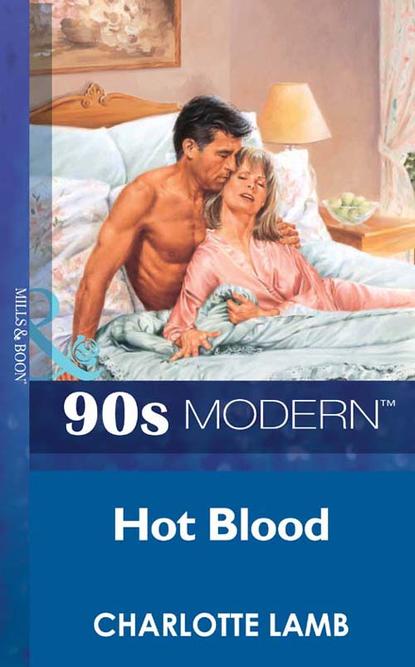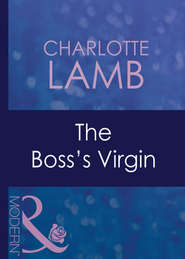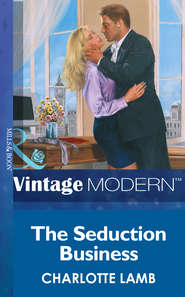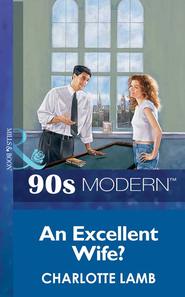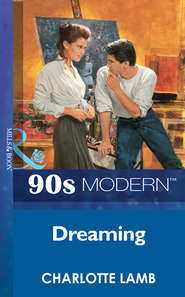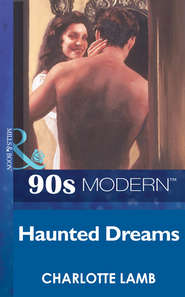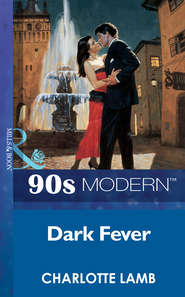По всем вопросам обращайтесь на: info@litportal.ru
(©) 2003-2025.
✖
Hot Blood
Автор
Год написания книги
2018
Настройки чтения
Размер шрифта
Высота строк
Поля
Of course, she found him attractive. He had a powerful, firm body under his clothes—you could tell that just by the way he walked—and his eyes had a naughty twinkle, like a little boy’s. He obviously liked life, and she liked the way he dressed too—casually but with style, in good brown checked tweeds, a cream shirt, no tie, with a bright red silky scarf hanging round his neck inside his open camelhair winter coat. And he had such a charming smile.
But her small-town mind wouldn’t let her take the risk easily. How did she even know that Joe Ingram was really his name, or that he wasn’t married with three point five children? Yet she wanted to go on talking to him; she was enjoying his company and she was reluctant to say goodbye; she couldn’t deny it.
What can he do to you in a coffee-bar? she asked herself impatiently. Don’t be such an idiot.
‘So long as you let me pay for my own coffee,’ she finally said, and he grinned at her in amusement.
‘The independent type! Well, that’s fine by me. I’m certainly not going to argue.’
As they walked across the road she looked sideways at him, measuring his height beside her, a little daunted by it, and wondering if his overcoat was cashmere—nothing else looked that soft and fine, did it? The tweed suit was well-worn and a little shabby, yet it must have cost quite a bit when it was new.
‘Do you actually live in Silverburn?’ she asked him, and he nodded, glancing down at her.
‘I’ve just moved into a flat in Townwall Street.’
She stiffened and gave him another startled look as he held the door of the coffee-bar open for her. ‘Really? That’s where I live—I’ve got a flat on the first floor of the big new apartment block right next to the entrance to the new shopping centre.’
He halted, staring down at her. ‘Snap! My flat is on the top floor—number fourteen. What an amazing coincidence.’ His blue eyes were almost dark in the brighter lights.
Kit felt quite odd about it. She didn’t believe in fate but it was a very big coincidence that they should have run into each other in a cinema like that. Or was it? Had he seen her going in or out of the building? Had he followed her to the cinema tonight? Or recognised her in the cinema and deliberately picked her up like that?
She had thought he looked familiar, she recalled. She must have seen him without really noticing him. It hadn’t just been that fleeting, fugitive resemblance to Clark Gable that had struck her.
If he had told her he lived in the same block of flats she probably wouldn’t have agreed to have coffee with him; she would have suspected his motives. But she couldn’t get out of it now.
They found a small table right in the corner and sat down. The noise was deafening; a jukebox was playing near the bar and the other customers yelled at each other over the deep beat of rock music.
A young waitress chewing gum came over, pad in one hand, pencil in the other, and stared at them indifferently.
‘Yes?’
‘Two coffees, please,’ Joe said, smiling at her.
‘Anything else?’ She didn’t smile back, just chewed her gum.
‘No, thank you.’
The girl walked away. Joe gave Kit a wry grin. ‘Maybe we should have gone to the pub instead. It might not have been so noisy.’
‘Noisier tonight,’ Kit assured him. ‘There’s a darts match on; they’re playing their rival pub; it could get very nasty.’
‘You drink there?’ He looked surprised.
‘I sometimes eat my lunch there on weekdays-they do very good food. Doreen, the landlady, was at school with me.’
The waitress came back and dumped their coffees on the table. ‘Will you pay me now? We’re closing in fifteen minutes and we want to cash up the till.’
Kit began to get out her purse, but Joe had already given the girl a handful of coins. ‘Keep the change,’ he said.
‘Thanks,’ she said, with the first flicker of a smile, and walked away again.
Kit offered him the price of her coffee. He shook his head. ‘You can pay next time.’
‘Who says there’s going to be a next time?’ But she put her purse back into her handbag.
‘I hope there will.’ He looked at her seriously and she looked down, flushing. He was giving her butterflies in her stomach, and it was a very long time since a man had done that to her. She didn’t know how to answer him.
After a pause he asked, ‘Do you have a job?’
‘I work for the local auctioneer, Keble’s.’
‘Doing what?’
‘I help in most departments. I take auctions, I price antiques and paintings, work on the accounts, even help with packing up items for posting if we’re short-handed.’
‘You must be very clever. Have you had years of training?’
‘Not exactly. I did an art degree before I got married, and my father ran an antiques shop, so I picked up quite a bit from him. I worked in the shop with him after I got married, to earn some extra money while my son was small.
‘I kept up my studies in the evenings, while Paul was asleep; I read a good deal and I took evening classes. I managed to get to London quite often to visit museums and art galleries. My husband was an expert in Oriental ceramics; he taught me a great deal too. I inherited my father’s personal collection of English furniture and porcelain when he died, so I suppose in one way or another I’ve been studying antiques all my life.’
Joe leaned his elbows on the table, sipping his coffee while he stared at her, his blue eyes narrowed and thoughtful. She stared back, prickling at the fixed nature of his gaze, and when he still didn’t speak said after a minute, ‘What? What?’
‘What what?’ he repeated, laughing.
‘What are you thinking?’ she asked him crossly.
He put out a finger and flicked it down her cheek, his voice soft. ‘That your hair is like spun silver and when you’re full of enthusiasm your face lights up as you talk.’
She went pink. ‘Oh, stop it! I’m not a teenager to be flattered like that.’ She took a sip of her own coffee; it was lukewarm by now. It couldn’t have been very hot to start with.
‘How long have you been divorced?’
Another of his abrupt, direct questions. ‘Five years,’ she said. ‘What about you?’
‘I can’t even remember. She left me years ago—said she was sick of being married to a man she never saw, and I can’t blame her; I was always out of the country. She thought my job was dangerous, too.’
‘Was it?’
He laughed. ‘In a way—if you were in the wrong place at the wrong time, but luckily I never was. Oh, I had a few little accidents—broke a leg once, got shot in the shoulder, got blown off my feet and spent a few weeks with concussion and a touch of deafness in one ear—but—’
‘But nothing serious,’ Kit drily concluded for him, and he grinned at her, amusement in his blue eyes.
‘Well, I survived it all, let’s put it like that.’
‘Let’s,’ she agreed. ‘What on earth made you choose Silverburn to move to after this peaceful life of yours? Do you think you’re ready for the heady excitements of our bustling metropolis?’
Quite seriously he said, ‘I was sick of flying around the world, sick of wars and famines, sick of city life, very sick of daily tension. I wanted to get out into the English countryside, and I had an aunt who lived here once, when I was just a kid. I remembered it as a lovely town, full of old buildings and great shops, and close to some gorgeous countryside too—so I came to look it over and decided it would suit me down to the ground.’





